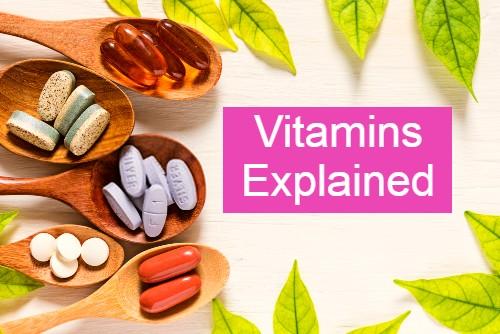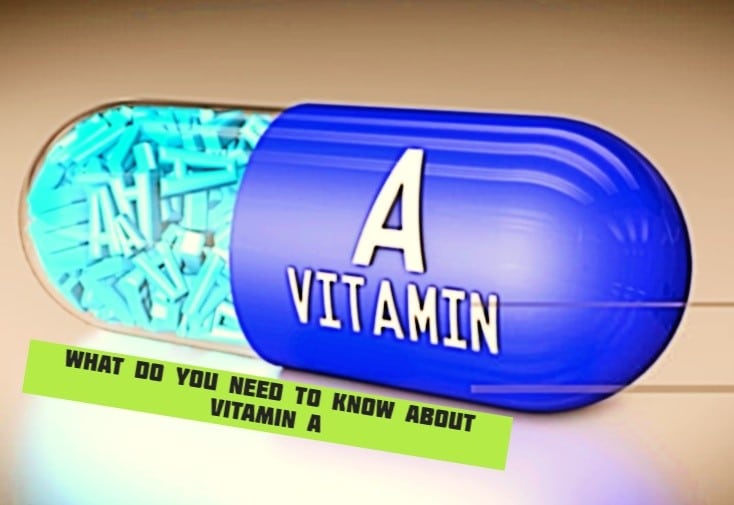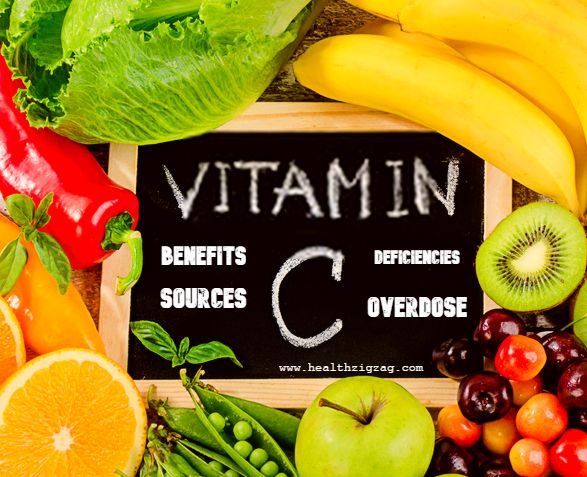
Contents
- 1 Too Much or Too Little Is Never Good
- 2 “Vitamin A” as in Agile, Able, and Athletic
- 3 “B Vitamins” as in Balanced, Beaming, and Blossoming
- 4 “C” as in Combative, Cheerful, and Capable
- 5 “D” as in Delighted, Dashing, and Durable
- 6 “E” as in Ebullient, Eager, and Efficient
- 7 “K” as in Kempt and Keen
- 8 Final Notes
A large number of people around the world use different supplements and vitamins. As not all of us eat a well-balanced diet, most people choose over-the-counter supplements. Which is not a bad idea. However, it is crucial to be aware of what your body needs and what each vitamin does for your body and health. So, what does a standard multivitamin pill contain?
Too Much or Too Little Is Never Good
Maintaining your optimal level of vitamins is not an easy thing to do. Still, it is of utmost importance for your health, as avitaminosis is linked to numerous chronic diseases. If you eat well and choose to take supplements, your body will be much more resistant in the long run. However, not following the recommended dose can become a problem.
Even though this vitamin is an ally in battling colds, vitamin C overdose leads to numerous side effects, such as kidney stones, digestive problems, reproductive health problems in men, and much more. When taken in large amounts, it tends to enhance iron absorption, eventually causing an overload. That can be detrimental to your liver, thyroid gland, heart, pancreas, etc.
Now that we pointed out the importance of proper dosage let’s discuss these miraculous substances, ever so important to our overall health and longevity.
“Vitamin A” as in Agile, Able, and Athletic

Experiencing early blindness and xerophthalmia, as well as issues with teeth and bones, might be a sign of a vitamin A deficiency. Found in animal livers, sweet potatoes, carrots, and broccoli, this vitamin promotes good eyesight and immune system.
This vitamin is liposoluble (soluble in fat) and naturally synthesized in two major forms. The first one is retinol—a type of vitamin A that we absorb by eating animal source foods (liver, for example). It is especially important in the treatment of skin conditions and inflammations. Arguably making our skin look younger. The second one is the carotene family—alpha-, beta-, and gamma-carotene. These are strong antioxidants and protect our lungs.
“B Vitamins” as in Balanced, Beaming, and Blossoming
The large family of eight water-soluble vitamins can be found in most foods: nuts and seeds, fatty fish, eggs, mushrooms, fruit, etc. Their deficiency often results in a lack of energy, strength, and coordination, numerous bowel and stomach problems, etc.
Vitamin B1, also known as thiamine, helps with coordination, motor skills, and energy levels. Lack of B2, or riboflavin, is connected with cracked skin, anemia, depression, etc.
B3 plays a major role in metabolizing fat, glucose, and alcohol, as well as managing bad cholesterol levels in our bodies. Niacin, as this vitamin is also referred to, is often taken in larger doses than prescribed. Which can lead to nausea, gout, flushed skin, dizziness, and more… Other vitamins in this family—B5, B6, B7, B9 or folic acid, and vitamin B12—are just as important.
“C” as in Combative, Cheerful, and Capable

Your body cannot produce this water-soluble vitamin. Which is why it is vital to take it every day. As well as most others, vitamin C plays an important role in keeping your immune system going. You will be able to fight inflammation, reduce high blood pressure, and thus lower your chances of developing heart disease, etc.
Also known as ascorbic acid, this vitamin is found in numerous fruits and vegetables, berries, leaves, etc. If you feel like you bruise easily and your wounds take a long time to heal, have certain gum disease (such as gingivitis), or your hair splits easily, you likely have a deficiency. Finally, 6-8 million US vegetarians believe that the lack of vitamin C might lead to cancer. You can check our article 10 Foods That Are Rich In Vitamin C for more.
“D” as in Delighted, Dashing, and Durable
Otherwise known as the sunshine vitamin, vitamin D is found in fatty fish and eggs, mushrooms, tofu, etc. It tends to last up to two times longer in the blood when the body produces it than when it is ingested. However, to “activate” it, one should spend a fair portion of time in the sunlight.
The lack of this vitamin is connected with an increased risk of cancer. On the other hand, regular supplementation helps prevent heart disease, hypertension, obesity, type 2 diabetes, etc.
“E” as in Ebullient, Eager, and Efficient
Vitamin E poses as a strong antioxidant and does a lot in protecting our cells from damage. Found in numerous foods, such as seeds and oils, fruits, and nuts, the term “vitamin E” refers to eight radically different compounds—tocopherol being the most important one for us.
Vitamin E helps us fight cardiovascular diseases such as heart disease, high blood pressure, and atherosclerosis, as well as cancer. On the other hand, consuming this important vitamin in excessive amounts can be dangerous, as it leads to hemorrhage.
“K” as in Kempt and Keen

Similar to most other vitamins, vitamin K can be found in many greens and beans (in the form of phylloquinone or K1) and occurs in our bodies naturally (as menaquinone or K2). It protects us from bruising, gastrointestinal disorders, excessive blood clotting, and skeletal system problems.
Those experiencing vitamin K deficiency are prone to bruising, may have blood clots under their nails, minor internal bleeding, and a dark stool with traces of blood in it. To avoid blood clotting, you can read our article Foods that act as natural blood thinners.
Final Notes
It is important to remember that vitamins tend to interact with some medications and affect the way our body absorbs them. Consult your doctor before you decide to take vitamins as you must follow the prescribed daily dose.




